
The rush to kickstart the new year with vigor for independent creatives is one within which the idea of taking a step back might seem counterproductive.
But embracing a period of rest and reflection in January could be exactly the strategic move needed to fuel creativity, prevent burnout, and enhance overall productivity.
Read more...
In the whirlwind of year-end sales and irresistible deals, many artists find themselves caught in a familiar cycle of seeking external fixes for deeper creative uncertainties, often without realizing the true cost. This pattern, fueled by emotional urges rather than genuine progress, can leave musicians chasing fleeting highs that never quite resolve the underlying doubts.
Read more...
In a world overwhelmed by information, the concept of "signal-to-noise ratio" is crucial not just in music production but in our everyday lives. Clarifying what truly matters amidst the distractions can pivot life from reactive chaos to intentional harmony. While legendary figures like Steve Jobs mastered this by filtering unnecessary noise, many of us, especially creatives, find ourselves trapped by the myth of busy-ness, missing the essence of our true inner voice.
Read more...
In a world that often equates perfect with excellence, it's easy to overlook how such mindsets can obscure the true essence of creativity: sincerity. This blog delves into the emotional complexity behind artistry, revealing how many artists inadvertently sacrifice the genuine sincerity that breathes life into their craft in an attempt to abandon perfectionist habits,.
Read more...
The Five D's—Death, Disease, Divorce, Discernment, Disillusionment. How these critical junctures often arise when we ignore the subtle signals that nudge us towards change. This post illuminates the benefits of a proactive approach and challenges the cultural narratives of self-sufficiency that often hinder our growth.
Read more...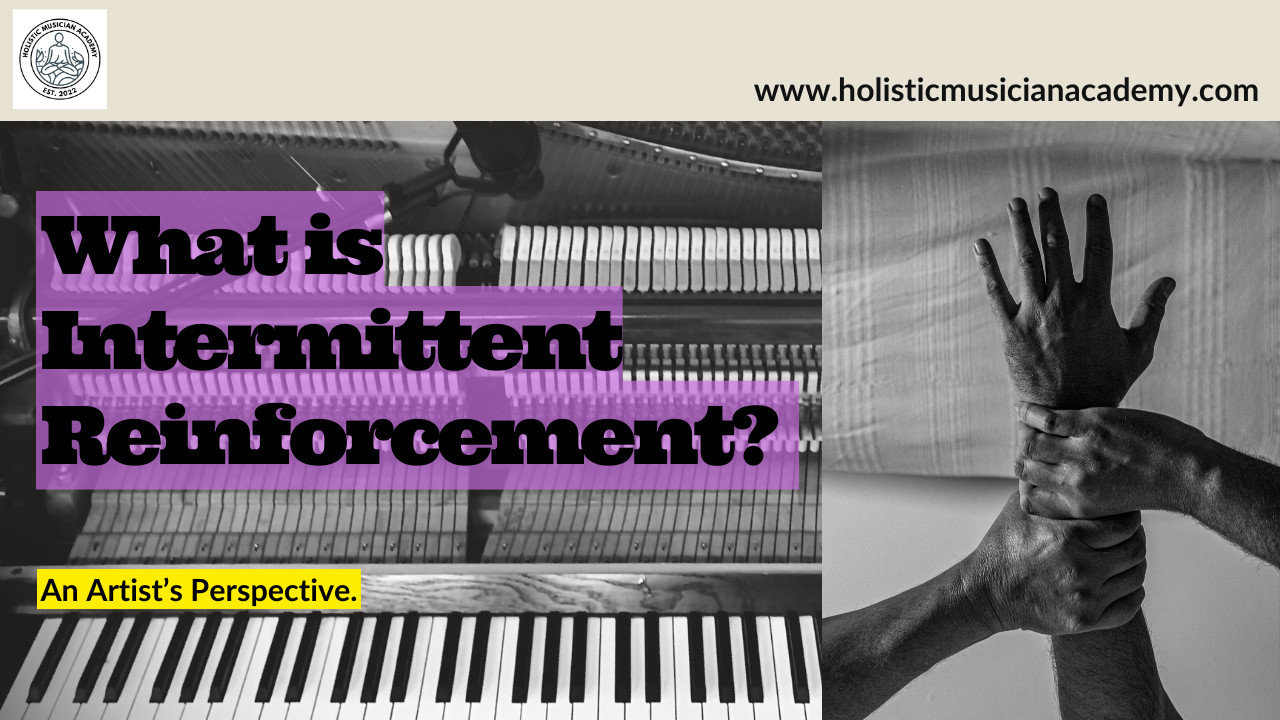
Dive into the complex dance between creativity and inconsistency, where unpredictability becomes strangely comforting and fuels the artistic journey with a subtle pull akin to gambling addiction. Understand intermittent reinforcement, a pattern that molds behavior through inconsistent feedback, reshaping the nervous system and embedding a sense of normalcy in shifting realities.
Read more...
Art often emerges as a vital sanctuary for those navigating life's deepest fractures, offering a sense of connection and safety. Yet, this very refuge can unwittingly evolve into a subtle trap, where unprocessed wounds forge unbreakable ties that blur the line. As artists chase authenticity and belonging, they may find themselves ensnared in cycles of pain and relief that hinder true growth and joy.
Read more...
In the fast-paced world of independent artistry, the concept of "hustle" has evolved from a symbol of self-reliance to a relentless pressure to produce and promote without pause. This blog post delves into the historical roots and modern implications of hustle culture, revealing how it has shifted from a tool for liberation to a potential trap that can erode an artist's inner life and creative joy.
Read more...
Great art arises not from the overbearing clutch of control or the endless drift of creativity but from their synchrony, where mindful practice meets spontaneous performance. Learn how to set intentions with strategic precision while nurturing an awareness that elevates your craft beyond the ordinary.
Read more...
Unlocking the true essence of mentorship means looking past the buzzword. A real mentor isn’t someone polishing your next single for the algorithm. They’re a guide who holds space for your whole journey—creative, human, and messy. In a world crowded with consultants promising shortcuts, the difference lies in lived craft and soul. Real mentorship goes deeper than strategy. It weaves together the psychological and the artistic, the career steps and the inner work, so growth feels authentic, not manufactured. This piece unpacks the myths and points to what matters: a mentor who’s both a practicing artist and a trusted guide, who understands that evolution is about becoming—not just producing. Mentoring, at its best, is sacred. It’s where introspection meets sustainable success. And if you’re searching, maybe it’s time to ask not just who can speed you up, but who can help you grow into the artist you already carry within.
Read more...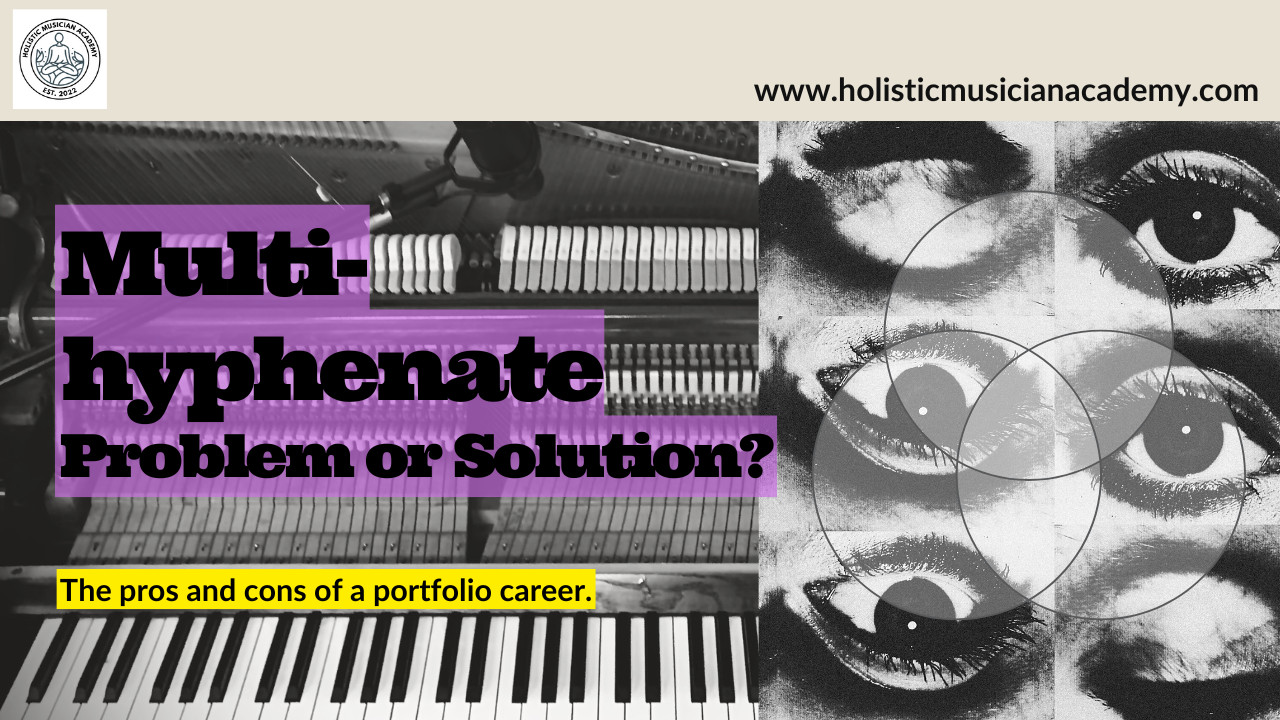
In today's creative landscape, the multi-hyphenate identity—where artists juggle roles like musician-producer-coach—has become a badge of survival, but it often masks deeper struggles in an unforgiving economy. While diversification promises adaptability, it can lead to fragmentation, diluting the very passion that fuels artistic pursuits. Experts warn of the invisible tradeoffs, where spreading too thin risks sacrificing true mastery for mere breadth. Yet, beneath this hustle lies a path to genuine alignment, challenging outdated myths about art and commerce. Dive deeper to uncover practical frameworks that could transform how you navigate your creative journey.
Read more...
Amidst the glamor and thrill of a musician's life lies a pressing need to address the emotional turmoil that often goes unacknowledged. While the allure of constant gigs and endless opportunities may seem like a dream, this whirlwind lifestyle can lead to mental fatigue and creative blocks if artists fail to process their inner struggles effectively.
Read more...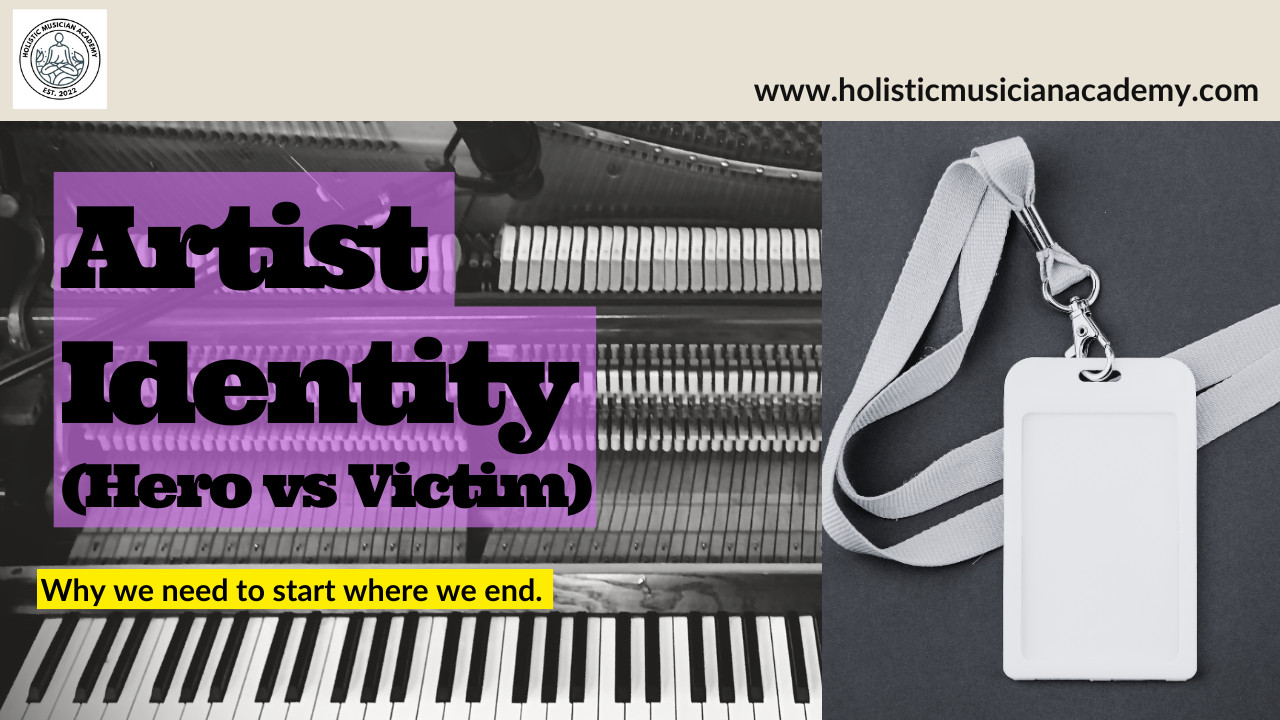
Understand the critical role that identity plays in an artist's journey and why it should be the foundation of your creative process. This blog post explores the pitfalls of neglecting your true self in pursuit of external validation, illustrating how artists often fall into traps like chasing viral fame or conforming to industry expectations. Learn how to navigate the delicate balance between hero and a victim narratives, and find practical steps to re-anchor your identity, ensuring your art remains authentic and fulfilling. A guide to understand how starting with identity can keep you whole and true to your artistic vision in the long haul.
Read more...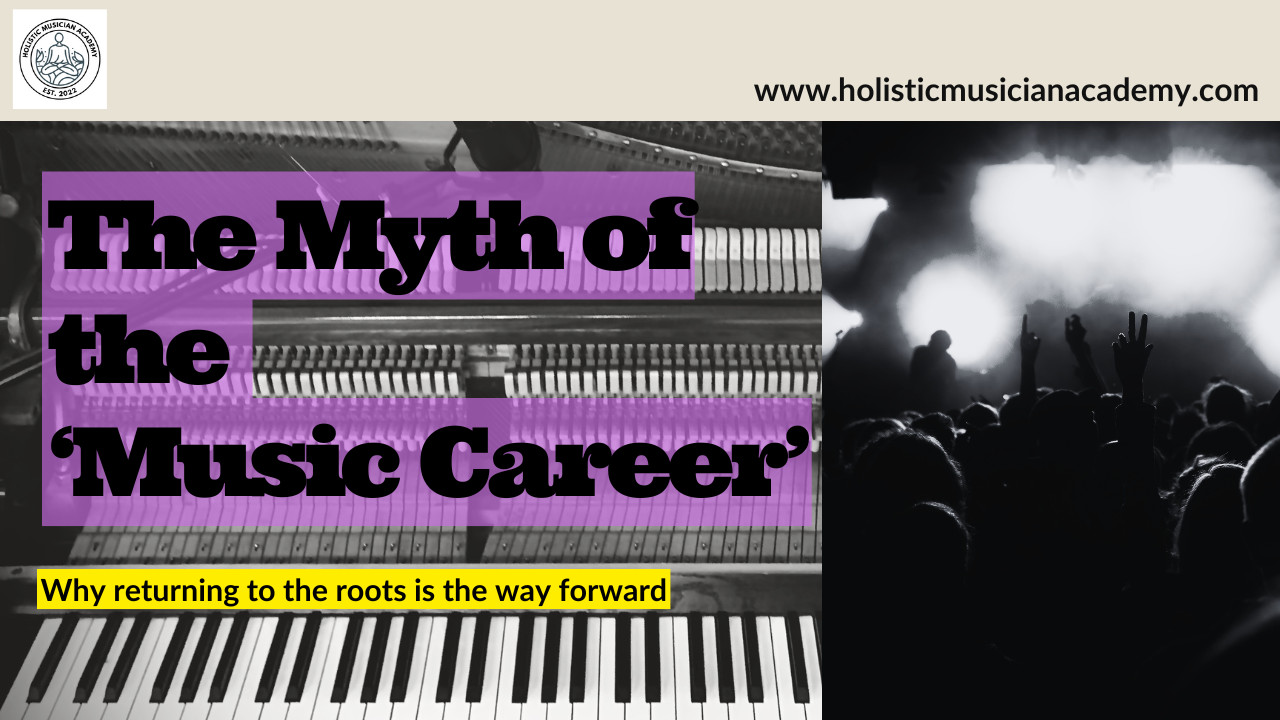
While the myth of sudden discovery and rapid success still tempts many artists, the reality is a system surprisingly young. And yet, one that continues to dominate artists' perceptions of success. The fascinating history of music as sacred ritual o the other hand, once a source of healing across cultures, has been transformed into a mass-produced entity under modern industry pressures.
Read more...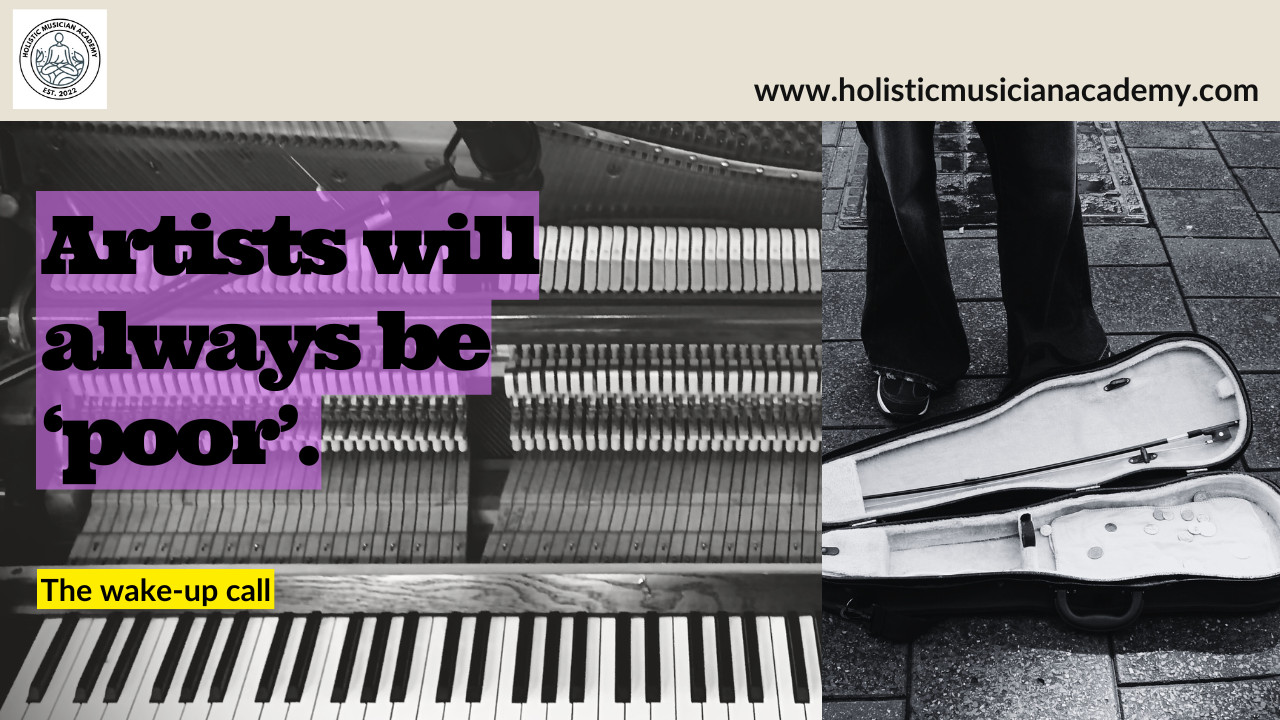
In a society that often measures success by the weight of its wallets, the true essence of wealth remains elusive. Artistry, frequently labeled as an unprofitable pursuit, challenges this superficial narrative by revealing deeper emotional coordinates like fulfillment and alignment-the wealth we we truly seek. While mainstream paths chase metrics, artists question "What would I still do if no one paid me?".
Read more...
In an era where artists are subtly coerced into the roles of content creators and market disruptors, the core essence of artistry risks being overshadowed by entrepreneurial ambitions. Modern creative culture often blurs the lines between genuine self-expression and commodified authenticity, leading artists toward the tempting yet restrictive path of scale, predictability, and market demand. Read on to understand how to strike a balance between financial sustainability and creative integrity.
Read more...
In a world inundated with free information at our fingertips, the power of investing in professional coaching emerges as a critical yet often overlooked advantage. While consuming endless online tutorials might point us in the right direction, true growth in artistry and skill requires more than mere content absorption; it necessitates a personalized journey of transformation led by a mentor.
Read more...
People pleasing is deeply rooted in societal expectations and psychological patterns, and often leaves artists caught between their authentic creative impulses and the pressure to meet others' demands. Learn about the historical and cultural dimensions of people-pleasing, and consider actionable strategies to reclaim your creative voice and protect your mental well-being.
Read more...
Feeling like a fraud is a common experience among artists and creatives at all stages of their careers, yet it doesn't have to define your path. This post explores the concept of imposter syndrome, debunking myths and offering practical strategies to build a healthier relationship with your feelings of self-doubt.
Read more...
Just like the meals we indulge in, the content we consume daily—Netflix binges, social media scrolls, and more—fuels our minds and impacts our creativity. For artists, whose creative essence thrives on the happenings within their inner realms, being mindful of the 'mental nutrition' we ingest is paramount.
Read more...
